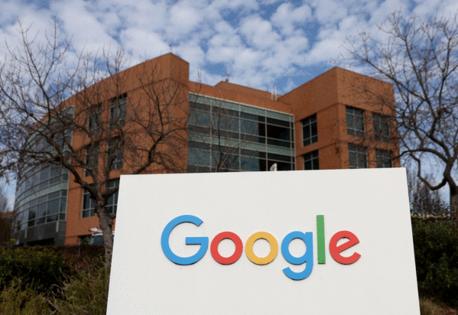Editorial: End Google's illegal monopoly: Judge's antitrust ruling is a positive step
Published in Op Eds
Of course Google has an unlawful monopoly on online ads, as a federal judge found Thursday, just like a different federal judge found last year that Google has an unlawful monopoly on online searching; everyone knows that “googling” means online search.
A market economy only works if there is competition and choice and Google’s monopolist practices prevent them. And that’s illegal.
Google’s control of the ads has turned the former garage start-up in to colossal worth close to $2 trillion. But that came at the expense of blocking out would-be competitors.
Advertising is the backbone of internet commerce and a lifeline for publishers of all types. Advertising is what has enabled the massive revenues of all social media giants, and it is what essentially every non-e-commerce business trying to make a living on the internet depends on.
The decision comes as the Federal Trade Commission seeks to have Meta, owner of Facebook, WhatsApp and Instagram, spin off the latter two, years after the company bought the competing products and, prosecutors argue, made them worse. These are all good signs for a healthy tech sector and online community.
There’s partly a problem of mismatched perceptions when it comes to the internet giants. Despite their meteoric rise to global power and prominence, companies like Alphabet (Google’s parent) and Meta have still seen themselves as fast-acting innovators that had to act aggressively to corner markets, not stopping to consider (or not bothering to contend with the implications of the fact) that they became at some point the dominant market players by far, not scrappy start-ups.
The moniker of moving fast and growing no matter the cost has proven good for the bottom line but decidedly mixed for the public. It’s only been through concerted public and political pressure that they’ve moved towards, for example, more moderation. That companies like Meta have now suddenly moved away from moderation shows how fickle they can be.
These companies will trot out some dire warnings if they are forced to relinquish aspects of their monopolistic control: consumers will be left adrift and paying for worse products; moderation will tank as smaller companies fight for the scraps; users will get more siloed into their own corners of the internet to the detriment of free and open communication. These are simply modern reformulations of the same arguments that monopolistic business interests have always used to try to dodge scrutiny and regulation.
It’s never been true before that the breaking up of a trust or a business cartel has cratered an industry or stifled innovation. Quite the opposite, actually. There’s some irony here in the fact that these tech companies were only made possible by the aggressive antitrust actions of the past as it’s likely that, in the absence of the breakup of AT&T and the Bell System in the 1980s, the whole Silicon Valley sector that sprung up not long after would have faced a much more uphill battle in trying to establish itself.
We hope that even as Big Tech cozies up to the Trump administration, the president will remember his promises to take on the entrenched power of the tech giants, which has been a quite rare point of bipartisan consensus for years. These actions will leave everyone better off.
___
©2025 New York Daily News. Visit at nydailynews.com. Distributed by Tribune Content Agency, LLC.




























































Comments